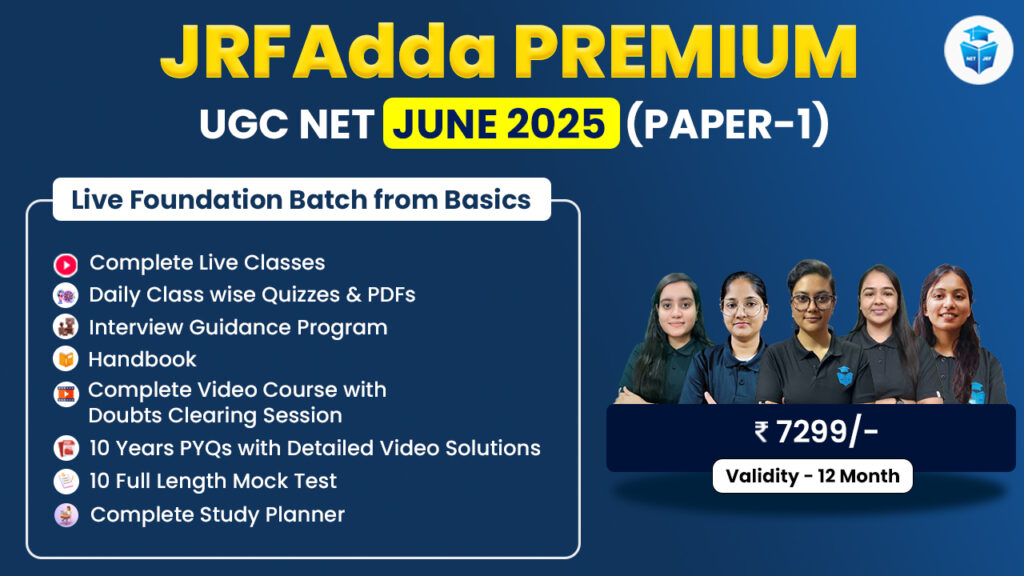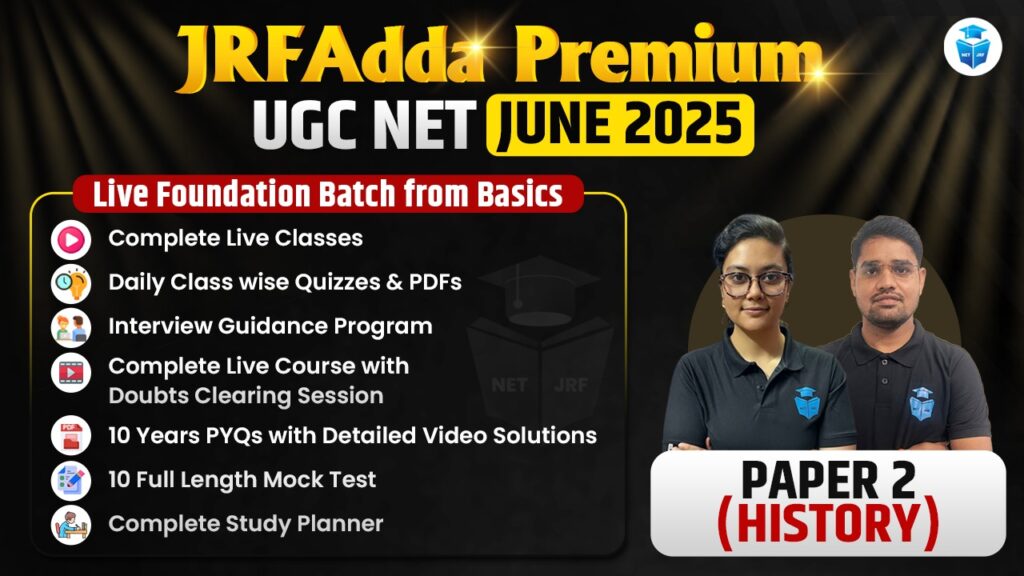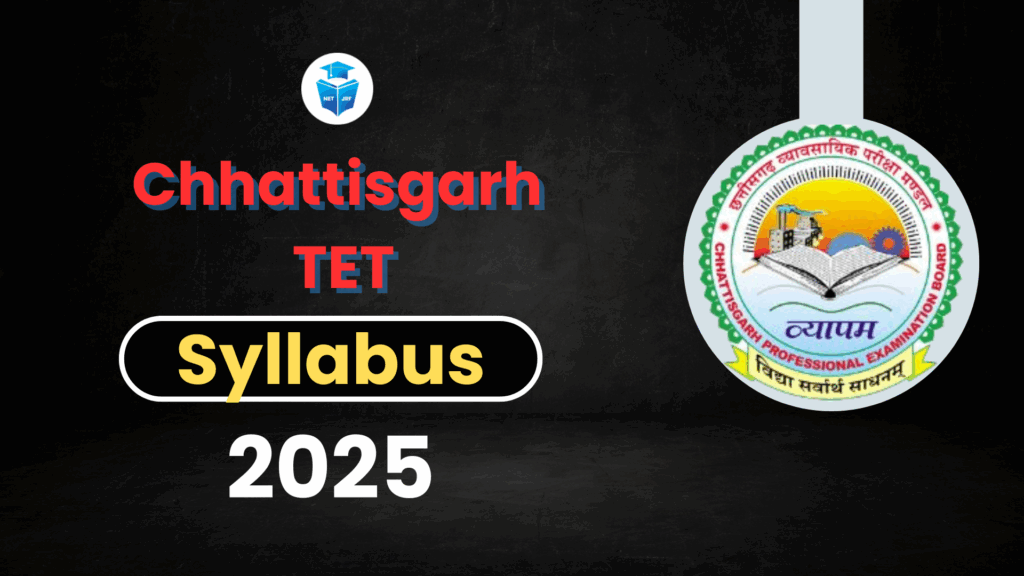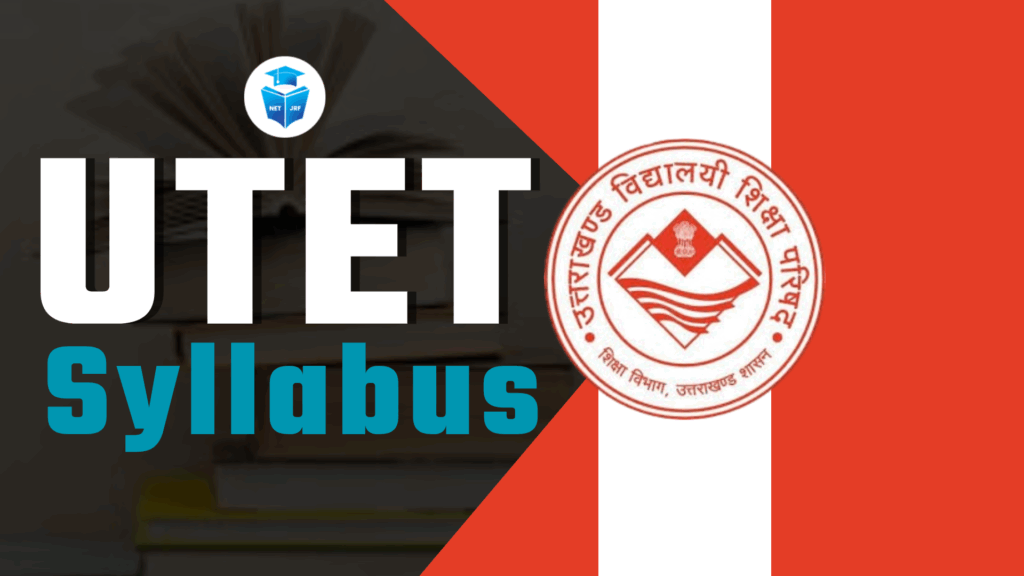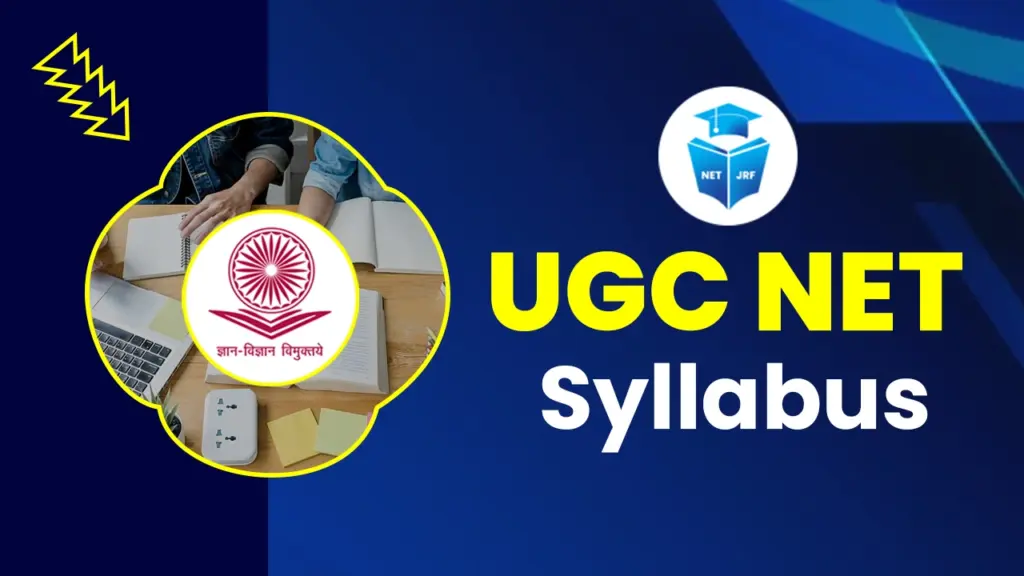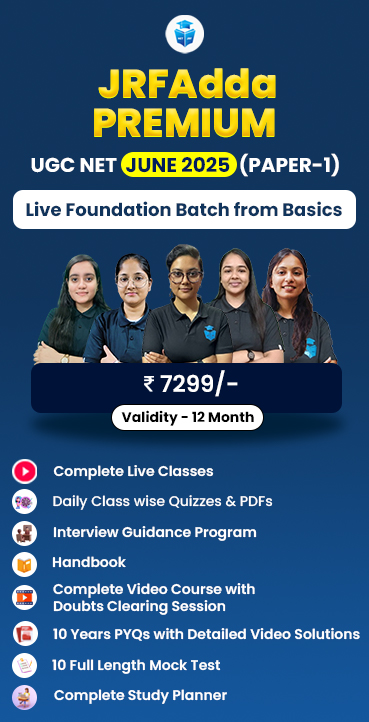CTET Syllabus 2025 defines the topics and subjects of Paper 1 and Paper 2, which are crucial for candidates appearing for the Central Teacher Eligibility Test. Paper 1 is for candidates who want to teach Classes 1 to 5, and Paper 2 is for teaching Classes 6 to 8. The syllabus comprises subjects such as Child Development & Pedagogy, Language, Mathematics, Environmental Studies, Science, and Social Studies. Knowing the syllabus in detail enables the candidates to concentrate on the important areas and prepare well. Here we have a detailed subject-wise analysis of CTET syllabus.
CTET Syllabus 2025 Overview
CTET is organized by the Central Board of Secondary Education (CBSE) and tests the knowledge of the candidates in several teaching-related subjects.
Exam Name | Central Teacher Eligibility Test (CTET) 2025 |
Conducting Body | Central Board of Secondary Education (CBSE) |
Exam Mode | Offline (Pen & Paper-Based) |
Papers | Paper 1 (Classes 1-5) & Paper 2 (Classes 6-8) |
Duration | 2.5 hours (Each Paper) |
Question Type | Multiple Choice Questions (MCQs) |
Total Marks | 150 Marks (Each Paper) |
Passing Marks | 90/150 (General/OBC), 82/150 (SC/ST/PwD) |
CTET Syllabus 2025 Paper 1 (Classes 1-5)
Section | Sub-Section | Number of Questions | Topics Covered |
I. Child Development and Pedagogy | a) Child Development (Primary School Child) | 15 | • Concept of development and its relationship with learning • Principles of the development of children • Influence of Heredity & Environment • Socialization processes: Social world & children (Teacher, Parents, Peers) • Piaget, Kohlberg, and Vygotsky: constructs and critical perspectives • Concepts of child-centered and progressive education • Critical perspective of the construct of Intelligence • Multi-Dimensional Intelligence • Language & Thought • Gender as a social construct; gender roles, gender-bias, and educational practice • Individual differences among learners, understanding differences based on diversity of language, caste, gender, community, religion, etc. • Distinction between Assessment for learning and assessment of learning; School-Based Assessment, Continuous & Comprehensive Evaluation: perspective and practice • Formulating appropriate questions for assessing readiness levels of learners; for enhancing learning and critical thinking in the classroom and for assessing learner achievement. |
b) Concept of Inclusive Education and Understanding Children with Special Needs | 5 | • Addressing learners from diverse backgrounds including disadvantaged and deprived • Addressing the needs of children with learning difficulties, “impairment,” etc. • Addressing the Talented, Creative, Specially abled Learners. | |
c) Learning and Pedagogy | 10 | • How children think and learn; how and why children “fail” to achieve success in school performance • Basic processes of teaching and learning; children’s strategies of learning; learning as a social activity; social context of learning • Child as a problem solver and a “scientific investigator” • Alternative conceptions of learning in children, understanding children’s “errors” as significant steps in the learning process • Cognition & Emotions • Motivation and learning • Factors contributing to learning—personal & environmental. | |
II. Mathematics | a) Content | 15 | • Geometry • Shapes & Spatial Understanding • Solids around Us • Numbers • Addition and Subtraction • Multiplication • Division • Measurement • Weight • Time • Volume • Data Handling • Patterns • Money. |
b) Pedagogical Issues | 15 | • Nature of Mathematics/Logical thinking; understanding children’s thinking and reasoning patterns and strategies of making meaning and learning • Place of Mathematics in Curriculum • Language of Mathematics • Community Mathematics • Evaluation through formal and informal methods • Problems of Teaching • Error analysis and related aspects of learning and teaching • Diagnostic and Remedial Teaching. | |
III. Environmental Studies | a) Content | 15 | i. Family and Friends: • Relationships • Work and Play • Animals • Plants ii. Food iii. Shelter iv. Water v. Travel vi. Things We Make and Do. |
b) Pedagogical Issues | 15 | • Concept and scope of EVS • Significance of EVS, integrated EVS • Environmental Studies & Environmental Education • Learning Principles • Scope & relation to Science & Social Science • Approaches of presenting concepts • Activities • Experimentation/Practical Work • Discussion • CCE • Teaching material/Aids • Problems. | |
IV. Language I | a) Language Comprehension | 15 | • Reading unseen passages—two passages: one prose or drama and one poem with questions on comprehension, inference, grammar, and verbal ability (Prose passage may be literary, scientific, narrative, or discursive). |
b) Pedagogy of Language Development | 15 | • Learning and acquisition • Principles of language Teaching • Role of listening and speaking; function of language and how children use it as a tool • Critical perspective on the role of grammar in learning a language for communicating ideas verbally and in written form • Challenges of teaching language in a diverse classroom; language difficulties, errors, and disorders • Language Skills • Evaluating language comprehension and proficiency: speaking, listening, reading, and writing • Teaching-learning materials: Textbook, multi-media materials, multilingual resource of the classroom • Remedial Teaching. | |
V. Language II | a) Comprehension | 15 | • Two unseen prose passages (discursive or literary or narrative or scientific) with questions on comprehension, grammar, and verbal ability. |
b) Pedagogy of Language Development | 15 | • Learning and acquisition • Principles of language Teaching • Role of listening and speaking; function of language and how children use it as a tool • Critical perspective on the role of grammar in learning a language for communicating ideas verbally and in written form • Challenges of teaching language in a diverse classroom; language difficulties, errors, and disorders • Language Skills • Evaluating language comprehension and proficiency: speaking, listening, reading, and writing • Teaching-learning materials: Textbook, multi-media materials, multilingual resource of the classroom • Remedial Teaching. |
CTET Syllabus 2025 Paper II (for classes VI to VIII) Elementary Stage
Section | Sub-Section | Number of Questions | Topics Covered |
I. Child Development and Pedagogy | a) Child Development (Elementary School Child) | 15 | • Concept of development and its relationship with learning • Principles of the development of children • Influence of Heredity & Environment • Socialization processes: Social world & children (Teacher, Parents, Peers) • Piaget, Kohlberg, and Vygotsky: constructs and critical perspectives • Concepts of child-centered and progressive education • Critical perspective of the construct of Intelligence • Multi-Dimensional Intelligence • Language & Thought • Gender as a social construct; gender roles, gender-bias, and educational practice • Individual differences among learners, understanding differences based on diversity of language, caste, gender, community, religion, etc. • Distinction between Assessment for learning and assessment of learning; School-Based Assessment, Continuous & Comprehensive Evaluation: perspective and practice • Formulating appropriate questions for assessing readiness levels of learners; for enhancing learning and critical thinking in the classroom and for assessing learner achievement. |
b) Concept of Inclusive Education and Understanding Children with Special Needs | 5 | • Addressing learners from diverse backgrounds including disadvantaged and deprived • Addressing the needs of children with learning difficulties, “impairment,” etc. • Addressing the Talented, Creative, Specially abled Learners. | |
c) Learning and Pedagogy | 10 | • How children think and learn; how and why children “fail” to achieve success in school performance • Basic processes of teaching and learning; children’s strategies of learning; learning as a social activity; social context of learning • Child as a problem solver and a “scientific investigator” • Alternative conceptions of learning in children, understanding children’s “errors” as significant steps in the learning process • Cognition & Emotions • Motivation and learning • Factors contributing to learning—personal & environmental. | |
II. Mathematics and Science | (i) Mathematics | 30 | a) Content (20 Questions): • Number System: Knowing our Numbers, Playing with Numbers, Whole Numbers, Negative Numbers and Integers, Fractions • Algebra: Introduction to Algebra, Ratio and Proportion • Geometry: Basic geometrical ideas (2-D), Understanding Elementary Shapes (2-D and 3-D), Symmetry (reflection), Construction (using Straight edge Scale, protractor, compasses), Mensuration • Data Handling |
b) Pedagogical Issues (10 Questions): • Nature of Mathematics/Logical thinking • Place of Mathematics in Curriculum • Language of Mathematics • Community Mathematics • Evaluation • Remedial Teaching • Problem of Teaching. | |||
(ii) Science | 30 | a) Content (20 Questions): • Food: Sources of food, Components of food, Cleaning food • Materials: Materials of daily use • The World of the Living • Moving Things People and Ideas • How things work: Electric current and circuits, Magnets • Natural Phenomena • Natural Resources | |
b) Pedagogical Issues (10 Questions): • Nature & Structure of Sciences • Natural Science/Aims & objectives • Understanding & Appreciating Science • Approaches/Integrated Approach • Observation/Experiment/Discovery (Method of Science) • Innovation • Text Material/Aids •Evaluation-cognitive/psycho-motor/affective • Problems • Remedial Teaching. | |||
III. Social Studies/Social Sciences | a) Content | 40 | History: • When, Where and How • The Earliest Societies • The First Farmers and Herders • The First Cities • Early States • New Ideas • The First Empire • Contacts with Distant Lands • Political Developments • Culture and Science • New Kings and Kingdoms • Sultans of Delhi • Architecture • Creation of an Empire • Social Change • Regional Cultures • The Establishment of Company Power • Rural Life and Society • Colonialism and Tribal Societies • The Revolt of 1857-58 • Women and Reform • Challenging the Caste System • The Nationalist Movement • India After Independence |
Geography: • Geography as a social study and as a science • Planet: Earth in the solar system • Globe • Environment in its totality: natural and human environment • Air • Water • Human Environment: settlement, transport, and communication • Resources: Types-Natural and Human • Agriculture | |||
Social and Political Life: • Diversity • Government • Local Government • Making a Living • Democracy • State Government • Understanding Media • Unpacking Gender • The Constitution • Parliamentary Government • The Judiciary • Social Justice and the Marginalised. | |||
b) Pedagogical Issues | 20 | • Concept & Nature of Social Science/Social Studies • Classroom Processes, activities, and discourse • Developing Critical thinking • Enquiry/Empirical Evidence • Problems of teaching Social Science/Social Studies • Sources- Primary & Secondary • Projects Work • Evaluation. | |
IV. Language I | a) Language Comprehension | 15 | • Reading unseen passages—two passages: one prose or drama and one poem with questions on comprehension, inference, grammar, and verbal ability (Prose passage may be literary, scientific, narrative, or discursive). |
b) Pedagogy of Language Development | 15 | • Learning and acquisition • Principles of language Teaching • Role of listening and speaking; function of language and how children use it as a tool • Critical perspective on the role of grammar in learning a language for communicating ideas verbally and in written form • Challenges of teaching language in a diverse classroom; language difficulties, errors, and disorders • Language Skills • Evaluating language comprehension and proficiency: speaking, listening, reading, and writing • Teaching-learning materials: Textbook, multi-media materials, multilingual resource of the classroom • Remedial Teaching. | |
V. Language II | a) Comprehension | 15 | • Two unseen prose passages (discursive or literary or narrative or scientific) with questions on comprehension, grammar, and verbal ability. |
b) Pedagogy of Language Development | 15 | • Learning and acquisition • Principles of language Teaching • Role of listening and speaking; function of language and how children use it as a tool • Critical perspective on the role of grammar in learning a language for communicating ideas verbally and in written form
• Challenges of teaching language in a diverse classroom; language difficulties, errors, and disorders • Language Skills • Evaluating language comprehension and proficiency: speaking, listening, reading, and writing • Teaching-learning materials: Textbook, multi-media materials, multilingual resource of the classroom • Remedial Teaching. |
STRUCTURE AND CONTENT OF SYLLABUS (Paper I and Paper II)
Note: For Detailed syllabus of classes l-VIII, please refer to NCERT syllabus and text books
CTET Syllabus 2025 Download
Applicants can download the official CTET Syllabus 2025 PDF from the official CBSE website. Here’s how to do it:
- Go to the official CTET website: https://ctet.nic.in.
- Click on the “Syllabus” link under the “Important Links” tab.
- Download the PDF for Paper 1 or Paper 2 as per your requirement.
CTET Exam Pattern 2025
The exam pattern for CTET 2025 is as follows:
Paper | Sections | Number of Questions | Marks | Duration |
Paper 1 | Child Development and Pedagogy | 30 | 30 | 2.5 hours |
Language I | 30 | 30 | ||
Language II | 30 | 30 | ||
Mathematics | 30 | 30 | ||
Environmental Studies | 30 | 30 | ||
Paper 2 | Child Development and Pedagogy | 30 | 30 | 2.5 hours |
Language I | 30 | 30 | ||
Language II | 30 | 30 | ||
Mathematics/Science or Social Studies | 60 | 60 |
Preparation Tips for CTET 2025
Below are the preparation tips for CTET 2025 mentioned:
- Understand the Syllabus: Read the CTET Syllabus 2025 carefully and concentrate on weightage topics.
- Practice Previous Year Papers: Practice previous year question papers in order to gauge the exam pattern and difficulty.
- Pedagogy Focus: Give special care to pedagogical concepts because they have weightage in both papers.
- Time Management: Practice mock tests to enhance speed and accuracy.
Conclusion
The CTET Syllabus 2025 is comprehensive and aims to test the teaching aptitude and subject matter of the candidates. Irrespective of whether you are preparing for Paper 1 or Paper 2, knowledge of the syllabus and pattern of the exam is the key to success. Download the syllabus, plan your study, and begin your preparation well in advance to crack the CTET 2025 exam.
CTET Syllabus 2025 FAQs
You can download the new CTET Syllabus 2025 from the official portal: https://ctet.nic.in.
Each paper contains 150 multiple-choice questions (MCQs) and each question is 1 mark.
Yes, those who want to teach primary (Classes 1-5) as well as upper primary (Classes 6-8) can appear for both papers.
Both papers (Paper 1 & Paper 2) are held for 2.5 hours (150 minutes).
No negative marking is done in the CTET exam.




